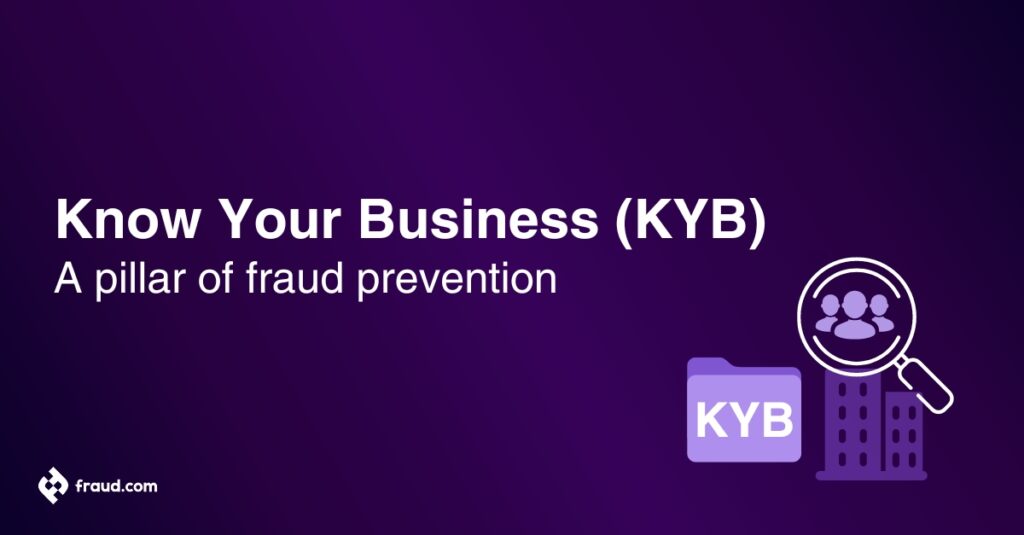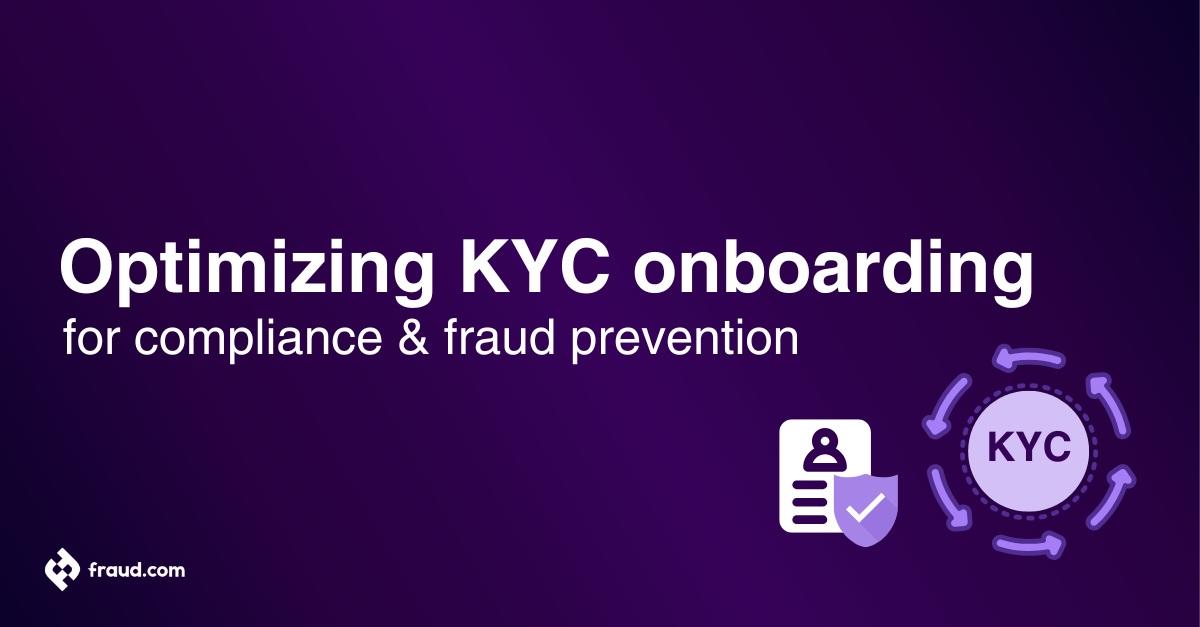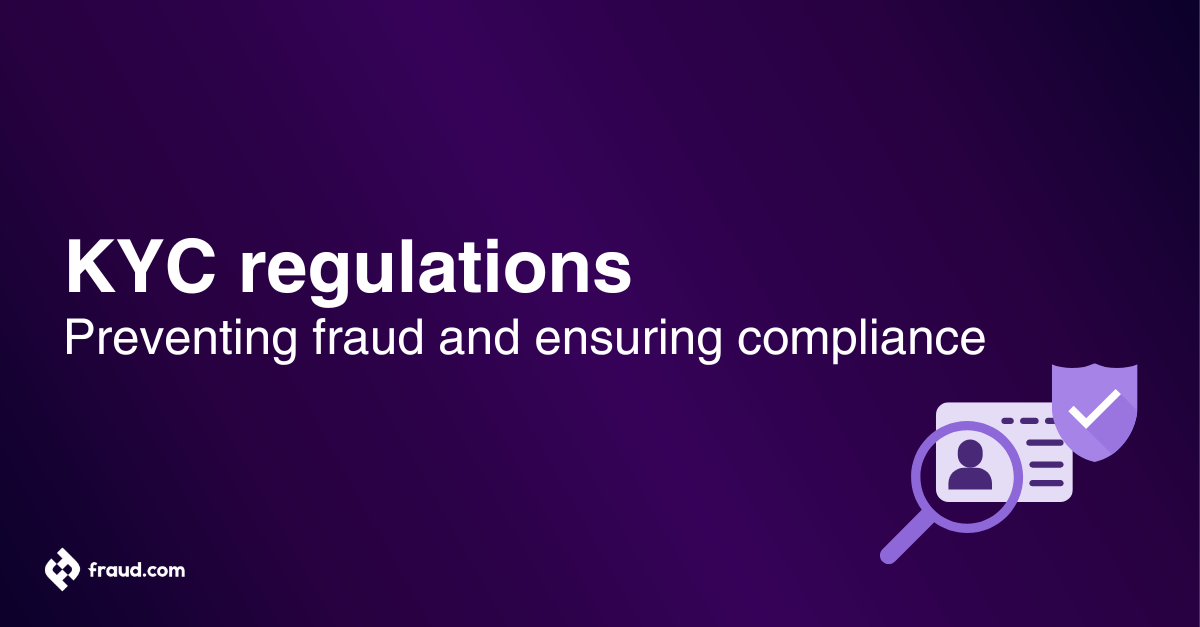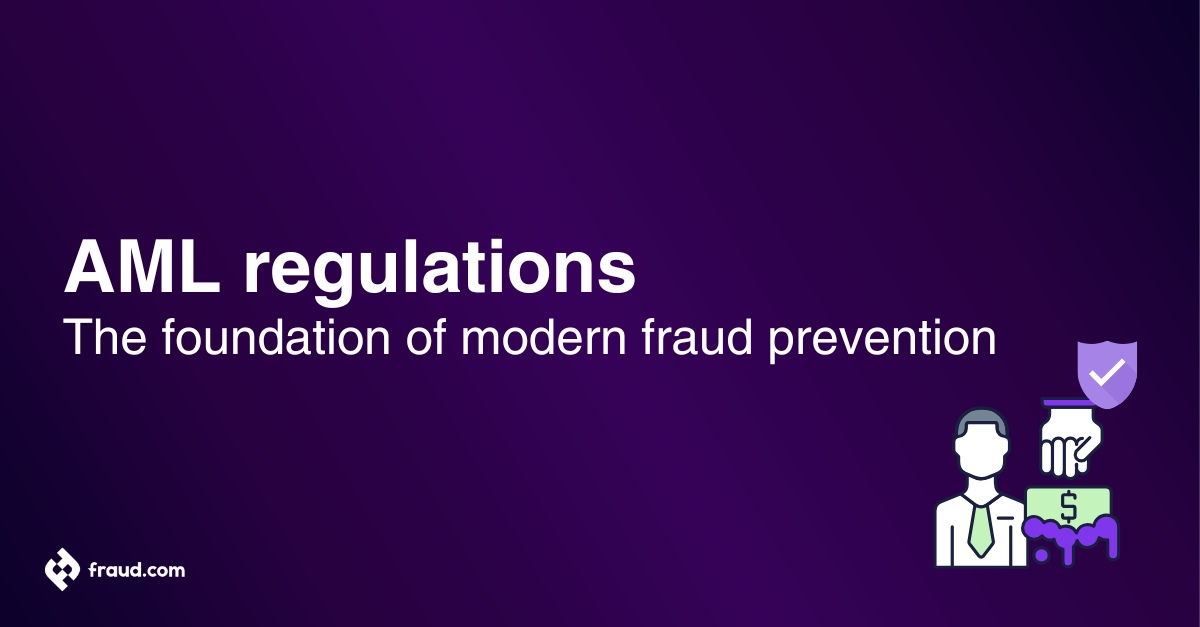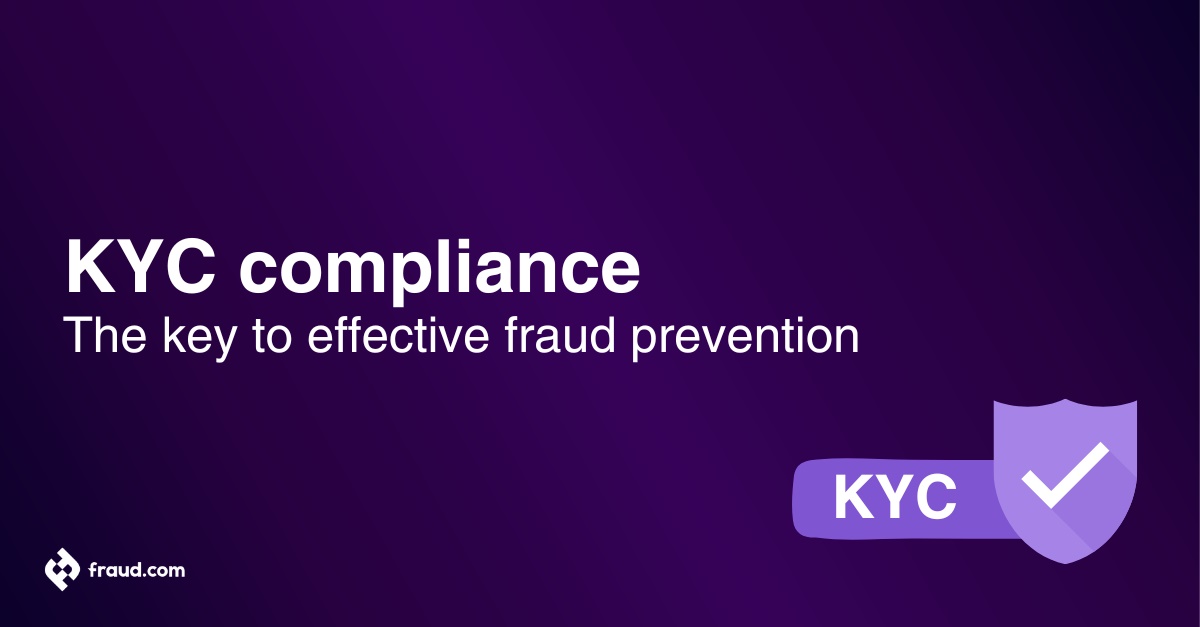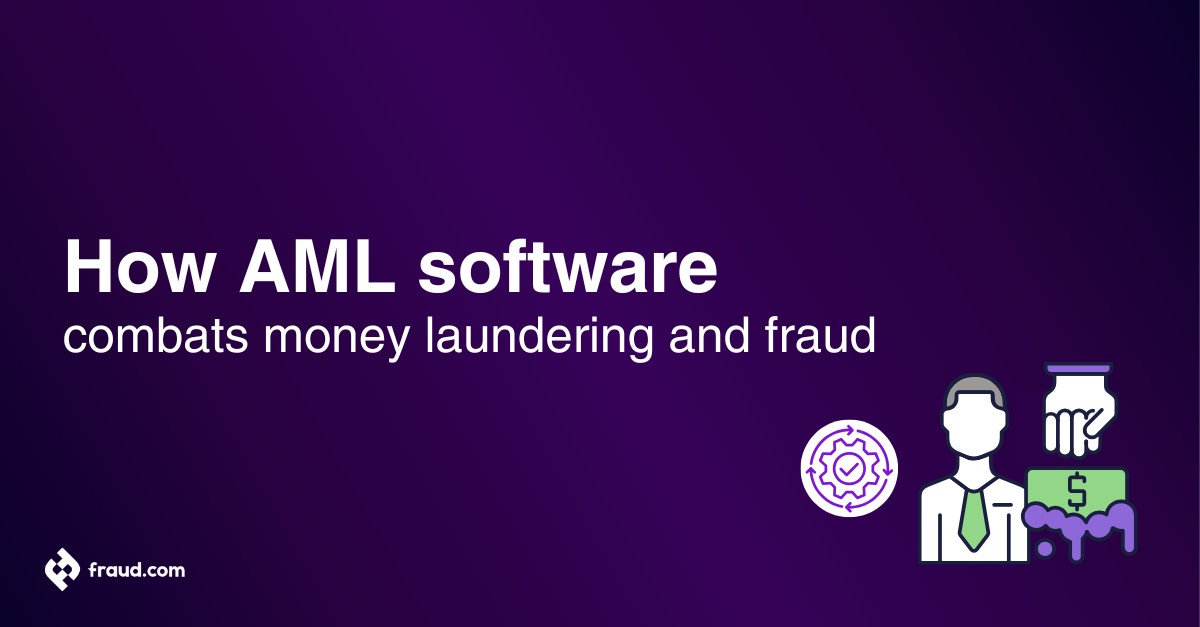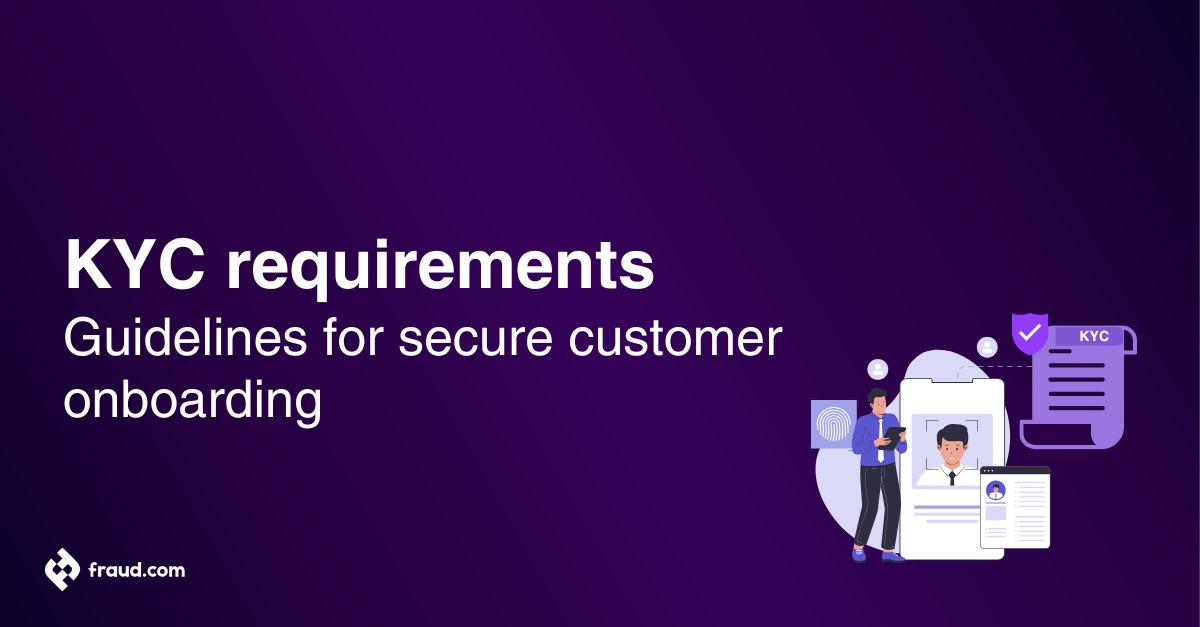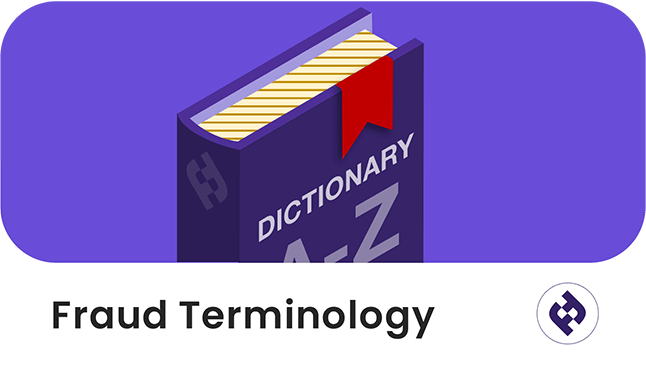The need for strong fraud prevention measures has never been more urgent, especially where transactions happen at the click of a button. Traditionally, Know Your Customer (KYC) protocols have played a central role in verifying individual identities, but now a broader focus has emerged: KYB. KYB stands for Know your Business and this process delves deep into the legitimacy and integrity of businesses. KYB ensures that companies are not being used as facades for illegal activities.
KYB involves meticulous assessments, ongoing monitoring, and strict adherence to regulatory standards. As fraud schemes grow more sophisticated, KYB stands as a crucial safeguard in the fight against corporate fraud.
This article will look at the main parts of KYB, it will highlight how KYB helps prevent fraud. It will also discuss its importance in operations and the technology that is changing its future. Understanding KYB is important for organizations. It helps them improve their fraud defenses and keep trust in a complex business world.
Table of Contents
ToggleWhat is Know Your Business (KYB)?
Know Your Business (KYB) is a comprehensive process designed to confirm the authenticity and legitimacy of businesses. It involves detailed verifications that help organizations not only meet regulatory obligations but also reduce the risks associated with fraud and unlawful business dealings. KYB is especially critical in industries like financial services, e-commerce, and supply chain management, where the potential for risk is substantial. By implementing KYB protocols, companies create a more secure and trustworthy business environment, ensuring that they partner with legitimate entities and stay protected against emerging threats.
How does Know Your Business (KYB) work?
Know Your Business (KYB) follows several steps to check if a business is real, well structured, and follows the rules. These key components collectively ensure that businesses meet regulatory requirements and reduce the risk of engaging with fraudulent entities. Here’s how KYB works:
Business identity verification
The first step in KYB is verifying that a business is legally registered and active. This involves checking official documentation such as registration certificates, licensing documentation and proof of address. Local and global databases help check business credentials, this ensures the company operates legally and has a good history.
Ultimate Beneficial Ownership (UBO) analysis
KYB digs deeper by identifying the individuals who ultimately own or control the business. This analysis uncovers any hidden layers of ownership, revealing who has the most to gain from the company’s operations. UBO checks are essential to ensure that these individuals aren’t on watchlists or involved in illegal activities like money laundering or terrorism financing.
Financial health assessment
A company’s financial stability is another crucial aspect of KYB. Financial health assessments examine a business’s financial statements, credit history, and transaction patterns. This process can highlight red flags, such as unusual transaction activity or financial inconsistencies, that might indicate fraud or financial instability.
Compliance checks
Businesses must adhere to various regulatory frameworks, including Anti-Money Laundering (AML) and Counter-Terrorism Financing (CTF) laws. KYB involves screening the company and its key figures against sanctions lists, politically exposed persons (PEP) databases, and adverse media reports. These checks ensure that the business is operating within the law and not engaging in unethical or illegal activities.
Ongoing monitoring
KYB is not a one-time process. Continuous monitoring is vital to capture any changes in the business’s structure, ownership, or compliance status. Leveraging technologies like AI and machine learning, KYB systems provide real-time alerts, ensuring that businesses remain informed of any potential risks or regulatory violations.
By incorporating these components, KYB ensures that businesses are not only legitimate and compliant but also financially stable and transparent. This robust framework plays a critical role in creating a more secure and trustworthy business environment.
The history of KYB
Understanding the origins of Know Your Business (KYB) illuminates its crucial role in modern fraud prevention. KYB evolved alongside a growing regulatory landscape and the complexities of global commerce.
Early regulatory frameworks: The need to verify business entities dates back to early frameworks aimed at combating financial crimes, notably the 1970 Bank Secrecy Act (BSA) in the U.S. This act required financial institutions to aid in detecting and preventing money laundering. Initially focused on individual transactions, it laid the groundwork for Know Your Customer (KYC) practices. However, as corporate fraud became more prevalent, similar scrutiny was needed for businesses, driving the adoption of KYB requirements.
Escalation with financial crises: The early 2000s and subsequent financial crises exposed critical gaps in business verification processes. Regulators recognized that businesses could facilitate financial crimes just as individuals could. This led to stringent Anti-Money Laundering (AML) and Counter-Terrorism Financing (CTF) regulations, emphasizing the importance of understanding complex corporate structures, their Ultimate Beneficial Owners (UBOs), and overall financial health.
Technological advancements: The rise of digital banking and global e-commerce demands sophisticated KYB procedures. Advances in technology transformed KYB from a manual, labor-intensive process to a more automated KYB solution. Artificial intelligence (AI), machine learning (ML), and blockchain technology now enable real-time data analysis, predictive modeling, and enhanced transparency, which are vital for detecting suspicious activity and preventing money laundering.
Modern regulatory developments: Recent regulatory frameworks, such as the European Union’s 5th Anti-Money Laundering Directive (5AMLD) and recommendations from the Financial Action Task Force (FATF), have set higher standards for business verification. These KYB regulations mandate detailed assessments to ensure businesses are not used for illicit activities, reinforcing KYB’s role in protecting financial systems and market integrity.
Which businesses should implement KYB?
As financial crimes and fraud become more sophisticated, Know Your Business (KYB) processes have become essential across various sectors. While all organizations can benefit from enhanced trust and fraud prevention, certain industries face heightened risks that make KYB implementation critical. Here’s a look at the sectors that should prioritize KYB:
Financial institutions:
- Banks and credit unions: These are prime targets for bank fraud and money laundering, making comprehensive KYB checks necessary for compliance with regulations like the Bank Secrecy Act (BSA).
- Payment processors and fintechs: As facilitators of digital transactions, they must adopt robust KYB protocols to safeguard their platforms against fraud.
E-commerce and marketplaces:
- Online retailers: With high transaction volumes, KYB helps verify the identity of merchants and maintain customer trust, also preventing e-commerce fraud.
- Peer-to-peer marketplaces: Platforms connecting buyers and sellers must verify participants to prevent scams.
Supply chain and logistics:
- Manufacturers and distributors: Validating all links in the supply chain is essential to prevent counterfeiting and maintain product integrity.
- Logistics companies: Verifying partners mitigates risks associated with fraud and theft.
Professional services:
- Legal and accounting firms: These firms handle sensitive information and large transactions; KYB helps meet regulatory requirements and uphold ethical standards.
- Consulting agencies: KYB ensures that clients and partners operate legitimately, protecting the firm’s reputation.
Real estate:
- Property management firms: Verifying legitimate businesses renting spaces prevents illegal operations.
- Real estate investment firms: KYB helps confirm the source of funds and the legitimacy of investment partners.
Non-profit organizations:
- Charities and NGOs: With frequent donations and funding, these organizations must implement KYB to verify donors and partners, ensuring funds are used appropriately.
Ultimately, any business involved in financial transactions or partnerships should adopt KYB protocols. These measures not only ensure compliance with regulations but also enhance transparency and trust among stakeholders. By integrating KYB, organizations can safeguard their reputations and lay a foundation for long-term success in an increasingly complex global market.
The role of KYB in banking
In banking, Know Your Business (KYB) plays a crucial role in safeguarding financial institutions. Banks must verify the legitimacy of their business clients. KYB helps banks prevent fraudulent entities from accessing financial services, comply with Anti-Money Laundering (AML) regulations, and detect potential money laundering or suspicious activity. By implementing KYB procedures, banks protect themselves and the broader financial system from corporate fraud and regulatory breaches.
What are the benefits of KYB?
Implementing Know Your Business (KYB) protocols offers several key advantages:
- Enhanced security and fraud prevention: KYB reduces the risk of engaging with high-risk or fraudulent entities, including shell companies, by verifying business credentials and ownership structures.
- Regulatory compliance: Adhering to Anti-Money Laundering (AML) and Counter-Terrorism Financing (CTF) regulations protects companies from penalties and reputational harm, aligning with standards set by organizations like FinCEN.
- Improved business relationships: By confirming the legitimacy of partners, KYB fosters trust and leads to stronger, more productive collaborations.
- Operational efficiency: Automating KYB processes saves time and resources, allowing for swift due diligence while minimizing the risk of unintentionally collaborating with unauthorized organizations.
- Risk mitigation: KYB provides comprehensive risk assessments and continuous monitoring, helping organizations identify and respond to potential threats early.
- Greater transparency: Careful checking of business entities improves market integrity. It also creates a trustworthy business environment, making it harder for fraud to succeed.
- Supporting legitimate businesses: KYB ensures that only legitimate entities participate in the marketplace, promoting fair competition.
Overall, KYB is vital for effective fraud prevention and regulatory compliance, helping businesses navigate today’s complex landscape while contributing to a transparent and resilient economy.
Why is KYB important?
KYB plays a critical role in preventing fraud, ensuring regulatory compliance, and building trust in business relationships. By verifying the legitimacy of business entities and their Ultimate Beneficial Owners (UBOs), it helps protect against fraud and illegal activities. Following AML and CTF regulations through KYB not only shields companies from legal issues and reputational harm but also fosters transparency and trust, both vital for long-term partnerships. Ultimately, KYB strengthens a company’s integrity in an increasingly complex regulatory environment.
Why KYB is essential in modern fraud prevention
In today’s interconnected world, businesses play a critical role in fighting fraud by performing KYB to ensure they engage with legitimate partners. Rigorous Know Your Business (KYB) and fraud prevention procedures are crucial for complying with regulations set by entities such as the Financial Crimes Enforcement Network (FinCEN), preventing fraud, and safeguarding the business ecosystem.
KYB is essential for establishing a comprehensive risk profile of potential partners, enabling enhanced due diligence to detect entities attempting to launder money or engage in other illicit activities. By aligning with regulatory guidelines, businesses not only protect themselves but also help create a more transparent and secure market environment. As fraud tactics become more sophisticated, KYB remains a cornerstone of modern fraud prevention strategies.
How does KYB ensure compliance?
Navigating complex and evolving regulations is a challenge for businesses across industries. Know Your Business (KYB) protocols help streamline compliance by verifying business integrity and ensuring adherence to legal standards. Here’s how KYB ensures compliance:
Comprehensive verification: KYB involves detailed checks of business registration, licensing, and Ultimate Beneficial Ownership (UBO) to confirm legitimacy and prevent hidden, illicit activities. Financial health and transaction monitoring are also key, helping businesses avoid non-compliance and suspicious activity.
Global and local regulation alignment: KYB ensures compliance with Anti-Money Laundering (AML), Counter-Terrorism Financing (CTF), and other regulatory frameworks. It screens for entities on sanctions lists and identifies Politically Exposed Persons (PEP) to avoid high-risk associations.
Continuous monitoring: Compliance is ongoing. KYB uses real-time monitoring powered by AI to track changes in ownership or transactions, flagging potential risks. Automated compliance reporting also simplifies audits and inspections.
Best practices: Regular audits, employee training, and third-party due diligence are key best practices. These measures ensure that businesses remain compliant, extending protection across the supply chain and reducing regulatory risk.
KYB is more than a regulatory requirement; it’s a commitment to ethical business practices. By verifying, monitoring, and aligning with regulations, KYB fosters trust, transparency, and long-term success.
What is the difference between KYC and KYB?
Know Your Customer (KYC) and Know Your Business (KYB) are both critical for preventing fraud and ensuring compliance, but they focus on different entities:
KYC (Know Your Customer) checks focus on verifying individual identities, ensuring customers are who they claim to be, and preventing personal financial crimes like fraud or money laundering.
KYB (Know Your Business), on the other hand, digs deeper into verifying companies, their ownership, and operations. It ensures businesses are legitimate by examining their registration, licenses, and Ultimate Beneficial Owners (UBOs), guarding against corporate-level fraud and financial crimes.
In short, KYC is about individuals, KYB is about businesses, both essential for compliance and fraud prevention.
How fraud.com can help with KYB
Navigating KYB compliance can be challenging, but fraud.com simplifies the process with advanced tools. Here’s how our solutions, Udentify, aiReflex, and fcase, support your KYB efforts:
- Udentify streamlines ID verification and authentication to ensure the legitimacy of individuals involved in business operations.
- aiReflex uses AI and ML to detect fraud in real time, continuously monitoring business activities and identifying suspicious behavior.
- fcase is an orchestrated fraud management platform offering Robotic Processing Automation (RPA) and reporting, aligning your operations with global and local regulations.
fraud.com’s solutions make KYB easier, offering real-time fraud detection, compliance alignment, and seamless integration into your business.
Know Your Business (KYB) FAQ
| Question | Answer |
|---|---|
| What is KYB? | KYB stands for Know Your Business, a process to verify the legitimacy of businesses and their owners. |
| How is KYB different from KYC? | KYC focuses on verifying individual identities, while KYB verifies business entities and their structures. |
| Why is KYB important? | It ensures compliance with regulations like AML and CTF, prevents fraud, and builds trust in business relationships. |
| What are Ultimate Beneficial Owners (UBOs)? | UBOs are individuals who ultimately control or own a business, and verifying them is key to preventing hidden ownership. |
| How does automation enhance KYB? | Automating KYB reduces manual work, speeds up verification, and improves accuracy through AI and ML technologies. |
| What industries need KYB? | Financial institutions, e-commerce, fintech, real estate, and any sector engaging in financial transactions. |
| How can KYB prevent fraud? | By verifying business credentials, ownership, and monitoring activities, KYB helps identify and mitigate fraudulent entities. |
| How often should KYB checks be performed? | KYB checks should be continuous, with real-time monitoring to capture changes in business structures or activities. |
| What are the regulatory bodies for KYB? | Regulations are enforced by bodies like FinCEN, FATF, and local financial authorities. |
| Can fraud.com help with KYB compliance? | Yes, fraud.com offers solutions like Udentify, aiReflex, and fcase to streamline and enhance KYB compliance efforts. |

